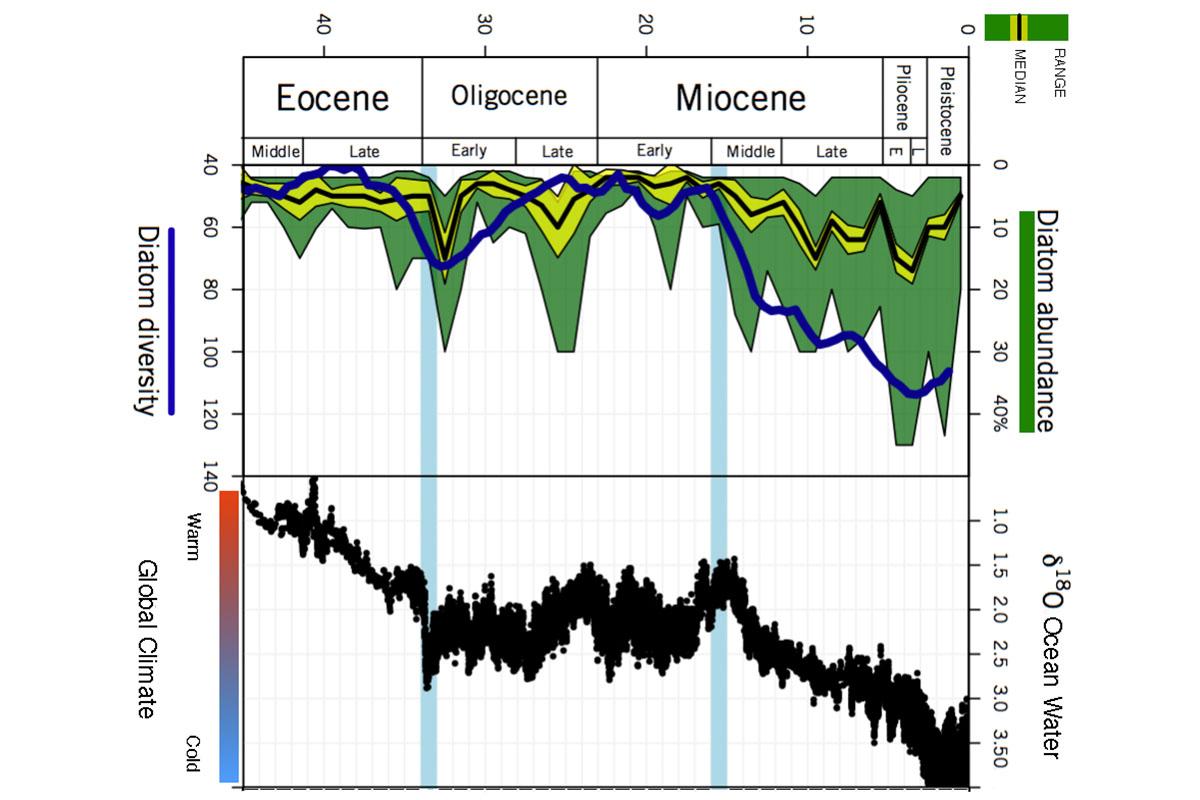Life strongly influences the global cycling of chemical elements on earth, and plankton dominates these processes over geologic time intervals. We are studying the evolving role of siliceous plankton on the earth's silica and carbon cycles over the last 100 million years. Major items of interest are the gradual shift in control of the silica cycle from radiolarians to diatoms; the impact of diatom evolution on the global carbon cycle, atmospheric carbon dioxide and climate; the sensitivity, and particularly extinction risk, of marine diatom plankton to global warming; and the potential of using biosilica accumulation in the deep-sea to recontruct the history of global weathering. Methods include reconstructing global accumulation rates of biosilica in ocean sediments over time from published data and the NSB age model library (see separate research project page on this website); new quantitative data on diatom and radiolarian accumulation in deep-sea sections; and silicon isotopes, the latter in collaboration with D. Conley's group (Lund, Sweden). This work is led by J. Renaudie, with partial support from the DFG.
Partners
- Daniel Conley
- Guillaume Fontorbe
Lund University
Publications
Renaudie, J., 2016, Quantifying the Cenozoic marine diatom deposition history: links to the C and Si cycles: Biogeosciences, v. 13, p. 6003–6014.
